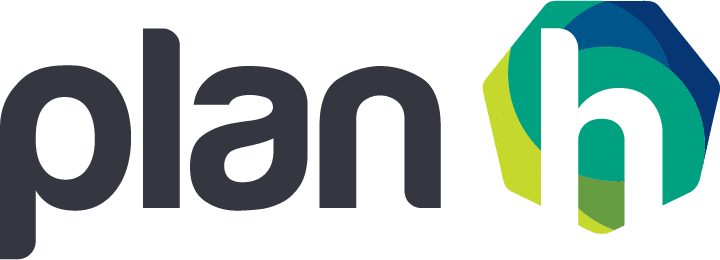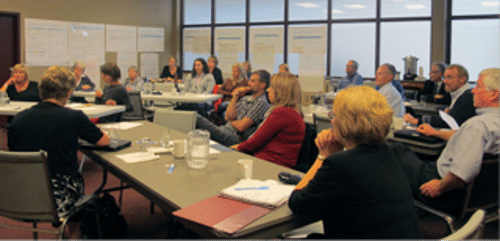Poverty not only affects a person’s ability to meet basic needs, but also restricts their opportunity to participate fully and with dignity in our society. In turn, this impacts the entire community. In Revelstoke, the affordability (or Market Basket Measure [MBM]) analysis revealed that just over 30% of residents were struggling to meet their needs. This is much higher than what is shown using traditional measurements, such as the Low Income Measure. The most significant expenses for residents were housing and food; between 2006 and 2011 rental prices of a one-bedroom apartment jumped approximately 52%, while food costs in Revelstoke are 14% higher than the provincial average.
During the update of the social goals of the Revelstoke and Area Community Development Action Plan in February 2011, it was noted that poverty was an underlying concern for Revelstoke residents. Between 2011 and 2012, funding was secured through the Columbia Basin Trust’s (CBT) Community Development Grants program, and a Learning Initiatives for Rural and Northern BC (LIRN) workshop was hosted by the Social Planning and Research Council of British Columbia (SPARC BC) and PovNet. This set the stage for the creation of Revelstoke’s Community Poverty Reduction Strategy, an inspiring asset-based approach.
Stakeholders
The Revelstoke Community Social Development Committee (RCSDC), a committee of City Council, took the lead to complete the poverty reduction strategy. A steering committee of eight members was struck to oversee the project, representing the following entities:
- City of Revelstoke
- Private sector (Talisman Trading Company and Revelstoke Credit Union)
- Non-profit agencies (Community Connections)
- Provincial government (Ministry of Children & Family Development)
- Revelstoke citizens and special interest groups
Partnerships
The creation of the poverty reduction strategy involved partnerships with:
- The City of Revelstoke Department of Community Economic Development (lead)
- Columbia Basin Trust (funding)
- SPARC BC and PovNet (LIRN workshops)
- Service providers and residents (interviews)
Summary of the Process
- Grant application (2011): Project proposal created, applied and received funding from CBT’s Community Development Grants program.
- Workshop (March 2012): LIRN workshop hosted by SPARC BC and PovNet involved 30 participants from diverse backgrounds, and included reviewing statistical trends, results of the affordability analysis and local assets, a discussion of the cost of poverty, and a brainstorm session around ‘what more we could be doing’.
- Data collection process (2011-2012): It is critical to establish baseline data, not only to get a statistical ‘picture of poverty’ in your community, but also to be able to track change over time. A literature review, census data, tax-filer data, and interviews with service providers and low-income residents were collected. Data revealed that at least 17% of all Revelstoke households are considered low income and over half of these are single individuals.
- Goals and actions (2012): The final poverty reduction report includes informational (‘promote knowledge of school grants, programs and supports for families’) and infrastructure-related aspects (‘work with local charities to build a fund to support access to supplementary health care for low income residents’ e.g., optometry and dental), and partnering actions (‘work with business leaders to increase awareness of the benefits of paying a living wage, and develop an award and recognition program’).
Key Outcomes & Impacts
A number of actions have taken place since the development of the Poverty Reduction Strategy:
- Revelstoke developed an Integrated Community Sustainability Planning (ICSP), in which poverty reduction was stated as one of the highest priorities.
- SPARC BC was contracted to facilitate a workshop with two goals in mind:
- To clearly identify and prioritize ‘achievable’ strategies for action;
- To form a leadership council that will ensure progress as we move forward.
- A Poverty Reduction Action Plan was one result of the workshop.
- Community awareness and dialogue around poverty in Revelstoke have resulted from the workshop and consultative process.
- The ongoing hard work of all service providers to support people living in poverty in Revelstoke, from School District staff to front line emergency workers, has been recognized. Much of this work is done ‘off the side of their desks’.
- The Poverty Reduction Working Group has been expanded to include seniors as well as people with lived experience.
- The Revelstoke Community Housing Society applied and received funding from the CBT Social Grants program for an Emergency Shelter Feasibility Study.
- The City of Revelstoke, in partnership with the Revelstoke Literacy Action Committee, applied and received funding from CBT Social Grants program to complete a two-year Financial Literacy project.
- Revelstoke was invited to share their experience regionally, in Nelson, BC.
- Revelstoke has connected with the national Cities Reducing Poverty Vibrant Communities Canada initiative, as well as the Caledon Institute of Social Policy’s Municipal Monitor on poverty reduction.
Additional Resources
- Revelstoke Poverty Reduction Strategy news article
- Revelstoke Poverty Reduction Action Plan
- Cities Reducing Poverty
- Caledon Institute of Social Policy Municipal Monitor on Poverty Reduction
For more information, please contact:
Jill Zacharias
Social Development Coordinator
E: e.jill.zacharias@gmail.com
T: 250-814-3875
Words of Advice
“Any strategy must be ‘asset-based’; establish what good work is already going on and go from there… Effective [poverty reduction strategies] are comprehensive in nature – working on many different areas simultaneously.” – Jill Zacharias





